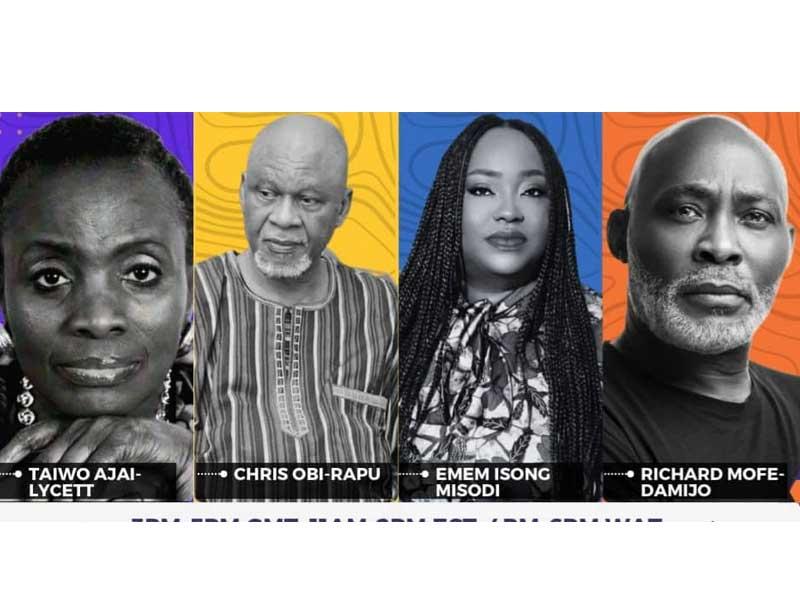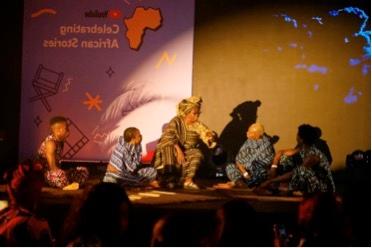|
|||
                             Â
Bolaji Adebiyi in Dubai
Digitalisation holds out a world of opportunities for Nollywood, Mr. Femi Odugbemi, an industry thought leader and leading film maker, said on Wednesday, explaining that with a projected N585 billion per annum, the future of the Nigerian film industry is bright.
Odugbemi spoke at the Digital Dialogue Conference holding in Dubai, the United Arab Emirate, while making his presentation on the development of Nollywood, and said the industry had grown phenomenally from its essentially leisurely origin to a financially rewarding vocation, which was assessed at $3.3 billion in 2014.
He said the exponential growth was made possible because the industry was one of the earliest to begin the digital dialogue by responding to the disruptions of its beginning by moving from Video Home System (VHS) to Video Compact Disc (VCD) formats, explaining however that the main stay of Nollywood was its consistency in connecting to the cultural experiences of its audience.
“If there has ever been an industry that created digital dialogue from the word go, it would be Nollywoodâ€, Odugbemi, who is also the CEO of Zuri24 Media Limited, told the conference facilitated by MultiChoice Africa, adding: “Nollywood found its audience and its audience found it because its story telling connected to the cultural experiences of its audience.â€
Because of this cultural connection, he said, Nollywood was bound to continue to grow in leaps and bound, provided, however, it did not lose focus and took advantage of the emerging opportunities provided by digitalisation.
He said evidence that the industry was on the upward swing was the increasing innovations in its arts and forms, which he said had moved its box office earnings to N3.5 billion ($11.5 million) in 2016, with Nollywood cited as one of the priority sectors identified in the Economic Recovery and Growth plan of the Federal Government of Nigeria and projected to attract $1 billion export revenue by 2020.
Saying digital solutions would open up a number of possibilities across Nollywood’s sub-sectors, including distribution, production, manpower and governance, Odugbemi explained that beyond the big screen, small screens were creating a world of opportunities to 130 million active GSM subscribers of which 25 per cent can spend N1,500 per month on movies, equating to a staggering annual revenue of N585 billion ($2 billion).
He said filmmaking in Nigeria was gradually becoming more sophisticated because of the growing options, including applications that could create a virtual rendition of a scene that digital filmmaking availed filmmakers.
He put the current capacity of Nollywood at an average of 50 filmmakers per film set, 2,000 film projects per year and estimated two million workforce.
He said although a sizeable part of the Nigerian film industry remained informal, Odugbemi, however, explained that there was a new thinking in Nollywood that was reshaping the industry and gradually creating formal structures that would allow filmmakers to access public and private funding to address the business of filmmaking.
According to him, “The industry is becoming more formalised. In terms of governance, business proposals, right contracts and change of title, agreements are becoming a necessary part of the business of Nollywood, helping to create a new line of roles and new businesses. There has been increased government participation in Nollywood in the areas of funding and grants, copyright legislation, and taxation. The industry is also being closely watched by guilds, lobby groups, and other relevant stakeholders.â€
Odugbemi concluded that despite ongoing developments, the DNA of Nollywood remains constant along with its reputation of being an artistic platform for telling stories that resonate with audiences around the world.
The Digital Dialogue Conference, is a thought leadership platform, facilitated by MultiChoice Africa, to foster a better understanding of the future direction of the pay-TV industry in Africa. This is the 5th edition of the conference, which was established in 2012 to create a better understanding of Digital Migration and its impact on Africa’s digital landscape.




